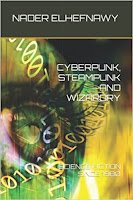I recall years ago reading of the 1851 Crystal Palace exhibition and how on its "special shilling days" when admission was discounted so that it was made affordable to the broader public the big Sommerophone organ was silent.
I also read Benjamin Disraeli's remark in a piece of private correspondence that he thought this a shame because of the "humanising effect" it might have "on the dog-stealers, cabmen and coalheavers" who came in.
While I do not want to diminish the complexity of Disraeli's political history it seems to me impossible to not take from this statement an extreme disdain for the "lower orders"--and indeed the term "dog-stealers," which I encountered here for the first time, struck me as a monument to the Victorian upper class' view of those whose toil in the conditions a Charles Dickens described so well made possible their luxury. ("'Dog-stealers?' Is that how they think of them?")
This did not change when I discovered that dog stealing (specifically, targeting the exotic and expensive status symbol-type pet dogs of the rich) for such purposes as ransom seems to have been a not insignificant species of Victorian-era crime--the more in as Disraeli so casually lumped in honest toilers as cabmen and coal heavers with criminals.
All the same, horrid as the Victorians were in such ways others have been no better--and the essential attitude remained the same even as the language changed (and I dare say, grew so much coarser that "dog-stealer" can seem genteel by comparison).
Merry Christmas
2 hours ago


